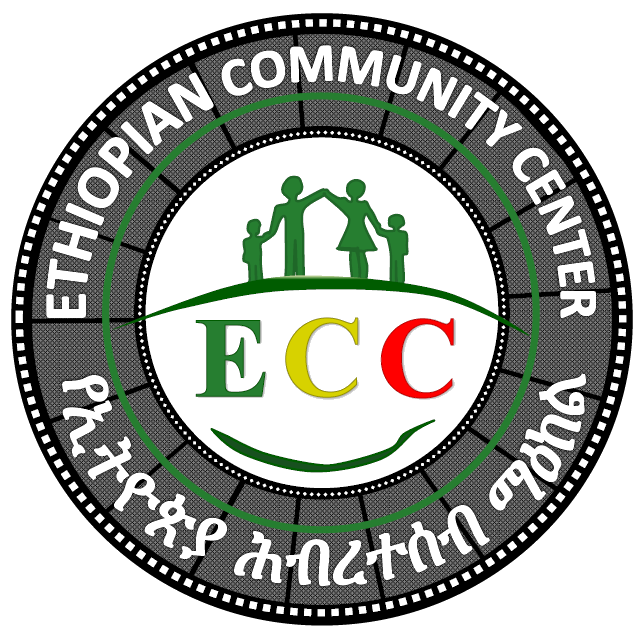
Adult Learners, ESL and Workforce Development Program
For the last 17 years, the Ethiopian Community Center’s (ECC) English as a Second Language (ESL) program provided and continues to provide five levels of classes designed to enhance life skills, employment opportunities and day-to-day communication skills of students. With more than 2000 graduates to date, the program serves an average of 120 students annually. Each student receives an average of 120 hours of classroom instruction a year.
ECC’s ESL program has served as a vital bridge that has successfully supported learners in their transition to academic and credentialing programs, improved their functional literacy, prepared students for citizenship tests, and increased their ability to successfully support their children’s education. In addition to English literacy, learners enjoy the opportunity to participate in our workforce development training, need-specific referrals to immigration and legal counseling, translation and interpretation services, and linkage to critical resources and information. They also access youth programs for their children, and participate in numerous activities ECC organizes in conjunction with government and community-based partners to address emerging needs of the African immigrant community.
Classes are offered using best practices for teaching adult learners by incorporating interactive experiential learning activities, role plays, opportunities for cross-cultural learning, and content geared to enhance health and wellness of students. The essential language skills of listening, speaking, reading and writing are incorporated into all content presented to students to allow for continued reinforcement and development of language skills.
Our Workforce Development Program,
designed with the intention to serve as a bridge program offering African immigrant workers, has two distinct tracks tailored to improve their career pathways and access to quality jobs namely, an education and credential attainment track for residents seeking to acquire new skills, and a job training and readiness track for residents looking for new job opportunities.
The first track targets residents with low educational attainment and limited skills for entry into a higher education program, and help them retool and access opportunities to develop new occupational skills through taking group and one-on-one mentorship training sessions. This second track targets skilled residents with a high school education or more, to develop their job readiness and connect them with opportunities to identify and secure quality jobs.
For the last 17 years, the Ethiopian Community Center’s (ECC) English as a Second Language (ESL) program provided and continues to provide five levels of classes designed to enhance life skills, employment opportunities and day-to-day communication skills of students. With more than 2000 graduates to date, the program serves an average of 120 students annually. Each student receives an average of 120 hours of classroom instruction a year.
ECC’s ESL program has served as a vital bridge that has successfully supported learners in their transition to academic and credentialing programs, improved their functional literacy, prepared students for citizenship tests, and increased their ability to successfully support their children’s education. In addition to English literacy, learners enjoy the opportunity to participate in our workforce development training, need-specific referrals to immigration and legal counseling, translation and interpretation services, and linkage to critical resources and information. They also access youth programs for their children, and participate in numerous activities ECC organizes in conjunction with government and community-based partners to address emerging needs of the African immigrant community.
Classes are offered using best practices for teaching adult learners by incorporating interactive experiential learning activities, role plays, opportunities for cross-cultural learning, and content geared to enhance health and wellness of students. The essential language skills of listening, speaking, reading and writing are incorporated into all content presented to students to allow for continued reinforcement and development of language skills.
Our Workforce Development Program,
designed with the intention to serve as a bridge program offering African immigrant workers, has two distinct tracks tailored to improve their career pathways and access to quality jobs namely, an education and credential attainment track for residents seeking to acquire new skills, and a job training and readiness track for residents looking for new job opportunities.
The first track targets residents with low educational attainment and limited skills for entry into a higher education program, and help them retool and access opportunities to develop new occupational skills through taking group and one-on-one mentorship training sessions. This second track targets skilled residents with a high school education or more, to develop their job readiness and connect them with opportunities to identify and secure quality jobs.
